
AIDS: The Lost Voices
In 1986, amid panic and stigma, Mountjoy and Arbour Hill instituted segregation wings for prisoners who tested positive for “AIDS antibodies”. Families were torn apart: one mother speaks with raw honesty about her son’s AIDS diagnosis compounded by a long‑standing drug addiction, while a female prisoner’s hunger strike became a public flashpoint. The crisis peaked with a dramatic rooftop protest and escape.
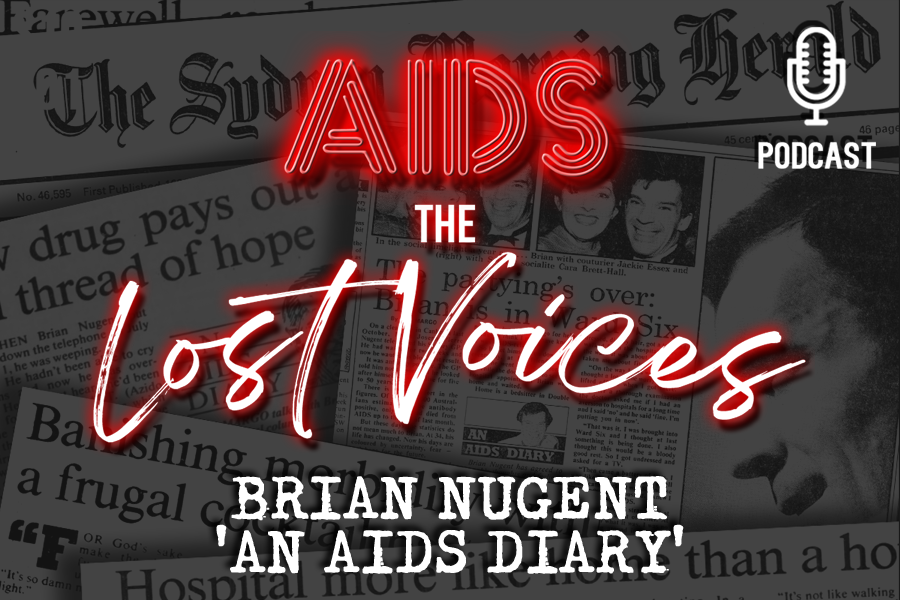
AIDS: The Lost Voices
In 1987 Brian Nugent began sharing his experience of living with AIDS through a collaboration with journalist Jill Margo; together they devised a regular column for The Sydney Morning Herald that chronicled the personal, social and political dimensions of the epidemic in Australia, giving a public voice to a deeply private struggle at a time of widespread fear and misunderstanding.

UK AIDS Quilt: Behind the Stitches
After visiting the UK AIDS Memorial Quilt at the Tate Modern, I was struck by how many lovingly created quilts were dedicated by a forename only. This intimate choice underscores the personal and profound connections behind each panel, inviting a closer look at the stories they represent. In this series, I delve into the quilts to uncover more about the individuals memorialised, often hearing from those who knew them best, their lives and the impact they left behind.

AIDS: THE LOST VOICES
In this special episode, "Remembering Roger Youd," a tribute on the 40th anniversary of Roger’s untimely passing we hear intimate recollections from his brother Carlton Youd and an inspiring interview with Paul Fairweather — a friend and longstanding, respected LGBT and HIV/AIDS activist who helped start the protest that followed Roger’s unlawful detainment. We also hear first‑hand accounts of Roger’s deep friendship with Ian, a bond so close they mischievously called one another “sisters”.
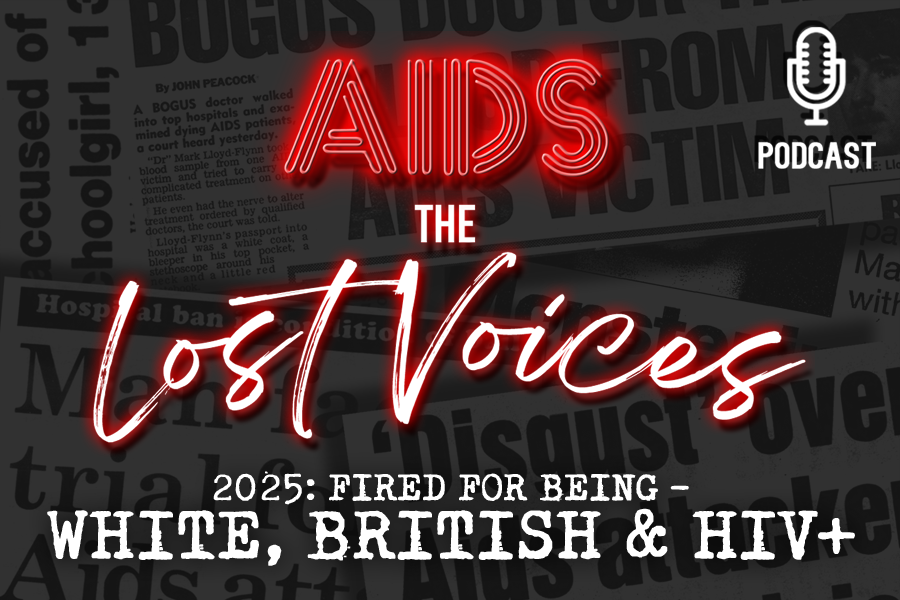
FIRED! White, British & HIV+
William Hampson, host of AIDS The Lost Voices, initiated legal proceedings against his employer, Fuller’s, Smith & Turner, citing HIV discrimination. This was then compounded by ongoing HIV-related discrimination, including physical assault, only for the company to retaliate by levelling unsubstantiated accusations of racism, which resulted in dismissal despite their own evidence proving them to be fabricated and malicious.
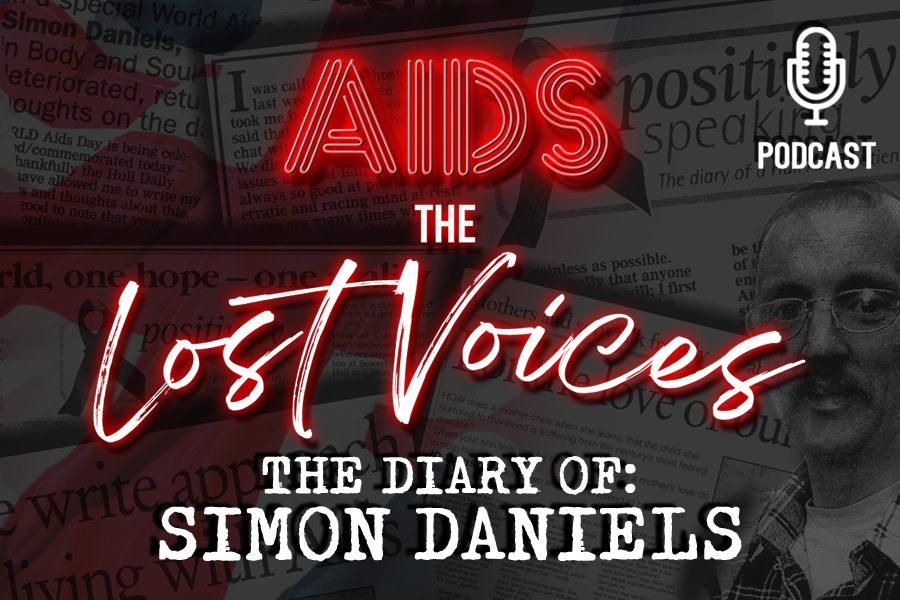
AIDS: The Lost Voices
Simon Daniels was 32 when he received the diagnosis of AIDS in October 1993, a period marked by widespread fear and misinformation. Hailing from Hull, East Yorkshire, he bravely documented his experience through a diary, which was published in the Hull Daily Mail. His candid and heartfelt reflections offered a rare and invaluable perspective on the challenges endured by those living with AIDS.
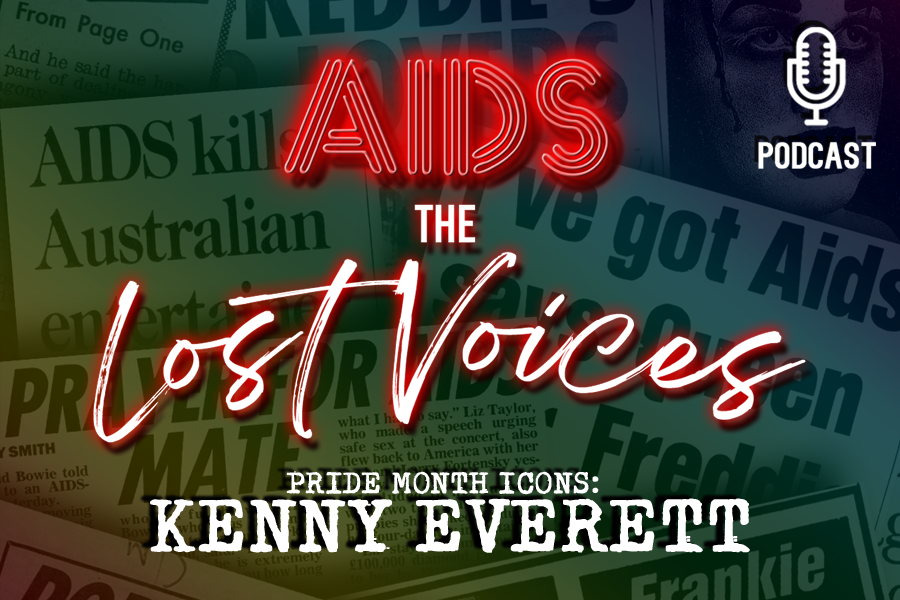
AIDS: THE LOST VOICES
Kenny Everett, an English radio DJ and TV entertainer, was known for his unique comedic style that captivated millions. His innovative humour left a lasting impact on British entertainment. Later, pressured by media, he publicly disclosed his HIV-positive status, which progressed to AIDS. Throughout, he faced challenges with courage and openness, raising awareness and solidifying his legacy as a gay icon.

AIDS: THE LOST VOICES
Terry Madeley, a London-born actor, captured the hearts of the nation when he courageously declared his AIDS diagnosis on national television. His openness and bravery at a time when stigma surrounding the disease was still pervasive brought much-needed awareness and compassion to the public discourse. A BBC documentary followed his death, leaving a profound impact through his honesty and dignity.

AIDS: THE LOST VOICES
As an artist, performer, model, TV personality, club promoter, fashion designer, and musician, Leigh Bowery refused to be confined by conventional boundaries. Emerging from the vibrant nightlife of 1980s London, Bowery crafted a daring and provocative presence that extended from underground clubs to galleries, theatres, and the street.

AIDS: THE LOST VOICES
Holly Johnson, the charismatic lead singer of the 1980s phenomenon Frankie Goes to Hollywood, rose to fame with three consecutive number ones: "Relax," "Two Tribes," and "The Power of Love." However, the band's split in 1987 marked the beginning of a new chapter for Holly Johnson, particularly after his HIV/AIDS diagnosis in 1991.

AIDS: THE LOST VOICES
Gaétan Dugas, wrongly labelled ‘patient zero’ in 1987 for allegedly introducing AIDS to North America due to misinterpreted epidemiological data, was later vindicated. His participation in a cluster study was crucial for understanding HIV/AIDS transmission. This shift transformed his legacy; he is now seen as ‘Patient Hero’ by the community. in 1993 there was a musical film and in 2019 a documentary film by those who knew him.

AIDS: THE LOST VOICES
In April 1959, 25-year-old David Carr from Manchester fell ill at the Manchester Royal Infirmary with a baffling illness culminating in his death by September. His doctors shared his case in a 1960 Lancet article noting he had a severely compromised immune system. By the late 1980s, tests on stored samples showed Carr had HIV, marking him as the world’s first identified AIDS patient.

AIDS: THE LOST VOICES
Those affected or infected with HIV/AIDS have often faced ostracism from friends, family, and workplaces, casting a shadow over their already challenging circumstances. We check out the experiences of four men—Andrew Peters, Michael Buck, Andrew Fay, and David Morgan—highlight the grim realities of workplace discrimination during the height of the AIDS crisis.

AIDS: THE LOST VOICES
Todd Shuttleworth was diagnosed with AIDS in June 1984, and was fired from his job three months later when his employer found out. Todd became one of the first individuals in the United States to take legal action against his employer for wrongful dismissal, marking the beginning of a protracted legal battle that paralleled his personal struggle with the illness.

AIDS: THE LOST VOICES
In the 1980s, society grappled with the grim reality of the AIDS epidemic, but it was the subsequent emergence of ‘AIPS’ - AIDS Induced Panic Syndrome - that reshaped the public narrative. The hysteria of AIPS often overshadowed the actual disease. This duality of response—ranging from the ludicrous to the tragic—illustrates the potent mix of anxiety and misinformation that characterised the era.

AIDS: THE LOST VOICES
Dave Patridge was 31 when he received the diagnosis of AIDS in the summer of 1987, a time when fear and misinformation surrounded the disease. Originating from Illinois, USA he courageously chronicled his journey through illness in a diary, which he shared with the Herald & Review newspaper. His poignant reflections providing insight into the struggles and realities faced by those living with AIDS.

AIDS: THE LOST VOICES
In this series finale, we delve into the complex and often troubling interplay between fear and exploitation surrounding AIDS diagnoses. Incidents of 'spitting', where individuals discharged saliva while claiming to be AIDS carriers. Equally disturbing are the stories of criminals wielding hypodermic needles, asserting that they contained HIV-infected blood.

AIDS: THE LOST VOICES
In this episode, we examine two notable cases of what has been termed 'HIV reckless transmission,' an aspect of Grievous Bodily Harm (GBH) where an individual transmits HIV to another without disclosing their status. The UK’s first man to be prosecuted, the judge remarked that the case relied on “pitiful evidence," highlighting the inherent difficulties in establishing a clear connection between the transmission of the virus.
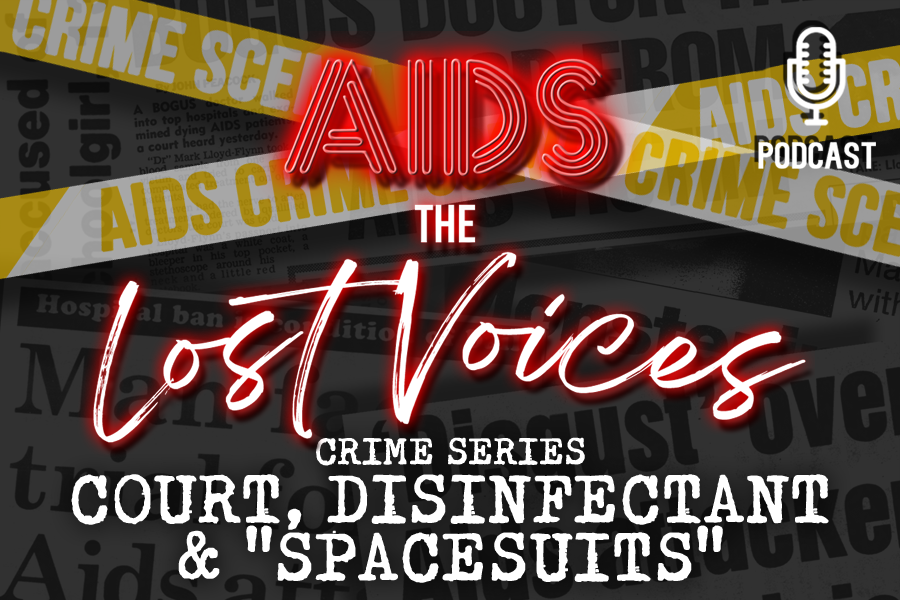
AIDS: THE LOST VOICES
In this episode, we delve into the lives of three men whose HIV/AIDS status tragically intertwined with their court appearances, leading to a profound public outing by the media. Each individual faced not only the repercussions of their alleged crimes but also the harsh realities of stigma associated with their health condition.

AIDS: THE LOST VOICES
Mark Trotter, a social worker from Hackney, was also a figure within the Labour movement. Following his death in 1995 from AIDS, the press ignited a firestorm of allegations that branded him a paedophile. It then came to light that several accusations had been made against him prior to his death, yet Merseyside police arrived in London with an arrest warrant to find that Trotter had died two weeks earlier from AIDS.

